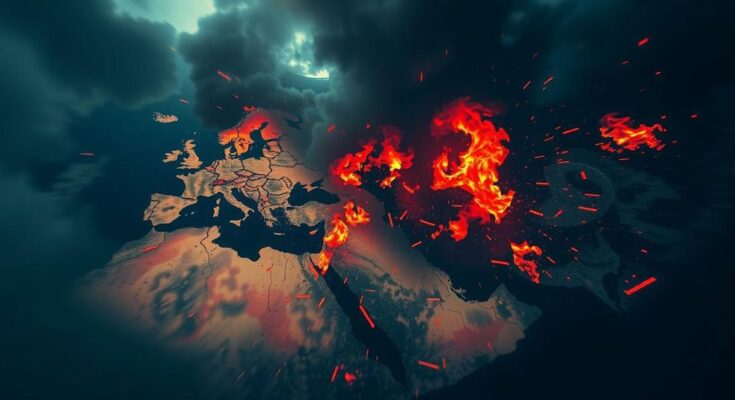Israel is on high alert for potential Iranian retaliation after recent strikes, with U.S. officials exploring diplomatic resolutions amid skepticism towards achieving a ceasefire. Ongoing conflicts in Gaza and Lebanon have led to significant civilian casualties and humanitarian concerns, prompting international attention. While hopes for a ceasefire with Hezbollah have surfaced, profound skepticism about reaching near-term resolutions persists.
The situation in the Middle East remains tense as Israel prepares for potential Iranian retaliation following its recent military strikes. An Israeli military source has stated that the nation is at a “high level of readiness” for any response from Iran, which has been hinted to occur before the upcoming U.S. presidential election. While U.S. officials are visiting the region in an effort to de-escalate tensions and promote discussions on the ongoing conflicts in Lebanon and Gaza, there is widespread skepticism regarding the possibility of achieving a ceasefire in the short term. In Lebanon, military action continues unabated. The Israeli military carried out strikes in southern Beirut, responding to a prior barrage of rockets from Hezbollah that killed several civilians, including four Thai laborers. Furthermore, in Gaza, airstrikes have led to significant civilian casualties, as reported by health authorities, sparking outrage over Israel’s ban on the United Nations Relief and Works Agency for Palestine Refugees in the Near East (UNRWA). UN official Michael Fakhri condemned this decision as a “death sentence” for nearly two million Gazans facing extreme hunger. Although there is cautious optimism regarding a possible ceasefire agreement between Israel and Hezbollah, recent hostilities have complicated diplomatic negotiations. Similarly, a Hamas representative has stated that any proposal lacking a permanent ceasefire and Israeli withdrawal from Gaza would be rejected. As both U.S. candidates for the presidency wish to avoid further escalation in the region, Israeli Prime Minister Benjamin Netanyahu’s next steps will likely hinge on the outcomes of the upcoming elections. Ultimately, as military leaders hint at a preferable move towards negotiations, the hope remains that diplomatic efforts, alongside international involvement, will yield a reduction in violence in Lebanon and Gaza while addressing the humanitarian crisis unfolding in Gaza due to ongoing hostilities and restrictions.
The Middle East is currently embroiled in a complex web of conflicts, primarily involving Israel, Iran, and various militant entities in Gaza and Lebanon. Following a series of military confrontations, particularly between Israel and Iranian-backed Hezbollah, regional tensions have escalated. The geopolitical dynamics are further complicated by U.S. involvement and the impending presidential election, which heightens the stakes for all parties involved. The ongoing humanitarian crisis in Gaza due to military operations and the restrictions imposed on aid organizations like UNRWA has drawn international condemnation and calls for diplomatic intervention.
In summary, the Middle East confronts heightened tensions with Israel’s military readiness against Iran and ongoing conflicts in Lebanon and Gaza. Diplomatic efforts led by U.S. officials seek to mitigate the violence, although skepticism remains regarding imminent ceasefires. As the situation evolves, the outcomes of both military engagements and U.S. elections will significantly influence future developments in this volatile region.
Original Source: www.cnn.com




